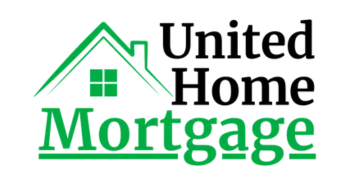First Time Home Buyer Programs
Welcome First Time Home Buyers!
At United Home Mortgage, we understand that buying your first home is a significant milestone. Our mission is to make this journey as smooth and affordable as possible with our tailored first-time home buyer programs in Colorado
Comprehensive First Time Buyer Programs
Our programs are designed to provide you with the financial support and resources needed to make homeownership accessible:
CHFA and CHAC Partnerships: We partner with Colorado Housing and Finance Authority (CHFA) and Colorado Housing Assistance Corporation (CHAC) to offer additional support and resources.
Flexible Credit Requirements: We accommodate a wide range of financial situations with our flexible credit requirements.
Competitive Interest Rates: Secure affordable monthly payments with our competitive interest rates.
Educational Resources: Access comprehensive educational resources to guide you through the home buying process.
Why Choose United Home Mortgage
Expert Guidance: Our experienced team provides personalized support throughout the entire home buying process.
Down Payment Assistance Programs: Access various programs to help you get started with little to no down payment.
Closing Cost Assistance: Benefit from programs designed to help cover your closing costs.
Low Down Payment Options: Explore mortgage programs that require a low down payment.

First-Time Homebuyer Programs and How to Qualify
"Home is the starting place of love, hope, and dreams." — Unknown
First-Time Homebuyer Programs and How to Qualify
Becoming a homeowner for the first time is an exciting milestone, but it can also be an overwhelming process. With rising home prices, saving for a down payment, and navigating the complexities of mortgage loans, the journey to homeownership can seem daunting. Fortunately, there are numerous first-time homebuyer programs designed to make this journey easier by offering financial assistance, lower interest rates, and other benefits to help you secure your dream home.
In this comprehensive guide, we’ll explore the various first-time homebuyer programs available, how to qualify for them, and what steps you need to take to make the most of these opportunities. Whether you're just starting to save or you're ready to buy, understanding these programs can give you the boost you need to turn the dream of homeownership into a reality.
Understanding First-Time Homebuyer Programs
First-time homebuyer programs are designed to assist individuals and families who are purchasing their first home. These programs are typically offered by federal, state, and local governments, as well as private lenders, and they aim to make homeownership more accessible by reducing the financial burden on buyers.
Common Features of First-Time Homebuyer Programs:
Down Payment Assistance: Financial aid to help cover the cost of a down payment, which is often the biggest barrier to homeownership.
Lower Interest Rates: Reduced mortgage interest rates to make monthly payments more affordable.
Tax Credits: Federal or state tax credits that can reduce your tax liability.
Closing Cost Assistance: Help with covering the fees and costs associated with closing on a home.
Flexible Credit Requirements: Programs that are more lenient with credit scores and financial history, making it easier for buyers with lower credit scores to qualify.
Types of First-Time Homebuyer Programs
There are several types of first-time homebuyer programs available, each with its own set of benefits and eligibility requirements. Here are some of the most common programs you may encounter:
1. Federal Housing Administration (FHA) Loans
FHA loans are one of the most popular options for first-time homebuyers. These government-backed loans are insured by the Federal Housing Administration, which allows lenders to offer more favorable terms to borrowers.
Benefits of FHA Loans:
Low Down Payment: FHA loans require a down payment as low as 3.5% of the purchase price, making it easier for buyers to save up.
Flexible Credit Requirements: FHA loans are more forgiving of lower credit scores, with some lenders accepting scores as low as 580.
Lower Closing Costs: The FHA limits the fees that lenders can charge, helping to keep closing costs more affordable.
How to Qualify for an FHA Loan:
Credit Score: A minimum credit score of 580 is typically required, though some lenders may require a higher score.
Debt-to-Income Ratio (DTI): Your DTI ratio, which compares your monthly debt payments to your gross income, should generally be below 43%.
Steady Income: Lenders will want to see proof of a stable income and employment history.
Primary Residence: The home must be your primary residence; FHA loans cannot be used for investment properties.
2. U.S. Department of Veterans Affairs (VA) Loans
VA loans are available to veterans, active-duty service members, and eligible surviving spouses. These loans are guaranteed by the U.S. Department of Veterans Affairs and offer several benefits that make homeownership more accessible for those who have served.
Benefits of VA Loans:
No Down Payment Required: VA loans allow you to finance 100% of the home’s value without needing a down payment.
No Private Mortgage Insurance (PMI): Unlike conventional loans, VA loans do not require PMI, which can save you hundreds of dollars each month.
Competitive Interest Rates: VA loans typically offer lower interest rates compared to conventional loans.
How to Qualify for a VA Loan:
Service Eligibility: You must meet the VA’s service requirements, which typically include a minimum length of service during wartime or peacetime.
Certificate of Eligibility (COE): Obtain a COE from the VA, which verifies your eligibility for the program.
Credit and Income Requirements: While the VA does not set a minimum credit score, most lenders require a score of at least 620. You must also demonstrate sufficient income to cover your mortgage payments.
3. U.S. Department of Agriculture (USDA) Loans
USDA loans are designed to help low- to moderate-income buyers purchase homes in rural and suburban areas. These loans are backed by the U.S. Department of Agriculture and offer several benefits to eligible buyers.
Benefits of USDA Loans:
No Down Payment Required: USDA loans allow you to finance 100% of the home’s value without needing a down payment.
Low Mortgage Insurance Costs: USDA loans require mortgage insurance, but the costs are typically lower than those of FHA or conventional loans.
Competitive Interest Rates: USDA loans often have lower interest rates, making monthly payments more affordable.
How to Qualify for a USDA Loan:
Location: The property must be located in an eligible rural or suburban area, as defined by the USDA.
Income Limits: Your household income must fall within the USDA’s income limits, which vary by location and family size.
Credit and DTI Requirements: While the USDA does not set a minimum credit score, most lenders require a score of at least 640. Your DTI ratio should generally be below 41%.
4. State and Local First-Time Homebuyer Programs
In addition to federal programs, many states and local governments offer first-time homebuyer programs that provide financial assistance, tax credits, and other benefits to eligible buyers. These programs vary widely depending on where you live, so it’s important to research the options available in your area.
Benefits of State and Local Programs:
Down Payment Assistance: Grants or low-interest loans to help cover the cost of a down payment.
Closing Cost Assistance: Financial aid to help cover closing costs, which can include appraisal fees, title insurance, and more.
Tax Credits: Some programs offer state tax credits that can reduce your tax liability.
How to Qualify for State and Local Programs:
Income Limits: Many programs have income limits that vary by location and family size.
First-Time Homebuyer Status: You must typically be a first-time homebuyer, defined as someone who has not owned a home in the past three years.
Primary Residence: The home must be your primary residence.
Credit and DTI Requirements: Requirements vary by program, so it’s important to check the specific criteria for the program you’re interested in.
5. Native American Direct Loan (NADL) Program
The NADL program is available to Native American veterans who wish to purchase, build, or improve a home on federal trust land. This program is offered by the VA and provides several benefits to eligible borrowers.
Benefits of the NADL Program:
No Down Payment Required: NADL loans do not require a down payment, allowing you to finance 100% of the home’s value.
No PMI: Like other VA loans, the NADL program does not require private mortgage insurance.
Competitive Interest Rates: NADL loans offer low interest rates, making homeownership more affordable.
How to Qualify for the NADL Program:
Service Eligibility: You must meet the VA’s service requirements and be an enrolled member of a federally recognized Native American tribe.
Property Eligibility: The home must be located on federal trust land.
Credit and Income Requirements: While the VA does not set a minimum credit score, most lenders require a score of at least 620. You must also demonstrate sufficient income to cover your mortgage payments.
How to Qualify for First-Time Homebuyer Programs
Qualifying for first-time homebuyer programs generally involves meeting certain income, credit, and property requirements. Here’s a step-by-step guide to help you determine if you qualify and how to apply for these programs:
Step 1: Assess Your Financial Situation
Before applying for any first-time homebuyer program, it’s important to assess your financial situation to determine if you meet the eligibility criteria. This includes reviewing your credit score, debt-to-income ratio, and savings.
Check Your Credit Score:
Your credit score plays a crucial role in qualifying for mortgage loans and first-time homebuyer programs. Most programs require a minimum credit score, which varies by lender and program. If your credit score is lower than the required minimum, consider taking steps to improve it before applying.
Calculate Your Debt-to-Income Ratio (DTI):
Your DTI ratio compares your monthly debt payments to your gross monthly income. Lenders use this ratio to determine your ability to repay the loan. Most first-time homebuyer programs require a DTI ratio of 43% or lower.
Evaluate Your Savings:
While some first-time homebuyer programs offer down payment assistance, it’s still important to have savings set aside for closing costs, moving expenses, and other unexpected costs.
Step 2: Research Available Programs
Once you’ve assessed your financial situation, research the first-time homebuyer programs available to you. This includes federal programs like FHA, VA, and USDA loans, as well as state and local programs that may offer additional benefits
Where to Look:
Federal Programs: Visit the websites of federal agencies such as the FHA, VA, and USDA for more information on their respective homebuyer programs.
State Housing Agencies: Your state's housing finance agency will have details on state-specific programs that offer financial assistance or incentives for first-time buyers.
Local Government Websites: Many cities and counties offer first-time homebuyer programs with additional benefits, including grants or low-interest loans, to help cover down payments and closing costs.
Pro Tip:
Explore nonprofit organizations and community programs as well, which often provide additional resources or counseling services to first-time homebuyers.
Step 3: Gather the Necessary Documentation
Once you've identified the programs that you may qualify for, the next step is to gather the necessary documentation to support your application. The exact documents required will vary depending on the program and lender, but generally, you can expect to need the following:
Commonly Required Documents:
Proof of Income: Recent pay stubs, tax returns, and W-2 forms.
Bank Statements: Copies of your recent bank statements to show your savings and current balances.
Proof of Identity: Government-issued ID such as a driver's license or passport.
Certificate of Eligibility (for VA Loans): Proof of your service or eligibility status for veterans applying for VA loans.
Credit Report: Lenders may pull your credit report as part of the application process, so be prepared for this step.
Pro Tip:
Having these documents organized and ready to go will make the application process much smoother and quicker, helping you move forward with confidence.
Step 4: Apply for the Program(s) of Your Choice
With your financial situation assessed and your documentation in order, you’re ready to apply for the first-time homebuyer program that best suits your needs. Depending on the program, you may apply directly through the lender, state housing agency, or federal agency.
Steps to Apply:
Contact a Lender: For federally-backed programs like FHA, VA, or USDA loans, start by contacting a lender who participates in these programs. They will guide you through the application process.
Submit Your Application: Complete the application, providing all required documentation. Be prepared to answer questions and provide additional information as requested.
Review the Terms: Once your application is processed, review the loan terms carefully. Make sure you understand the interest rate, loan term, and any additional requirements.
Pro Tip:
Don’t hesitate to ask questions throughout the application process. Understanding the terms and requirements of your loan is crucial to making informed decisions.
Step 5: Get Pre-Approved and Start House Hunting
After your application is approved, the next step is to get pre-approved for your mortgage. Pre-approval gives you a clear idea of how much you can afford and demonstrates to sellers that you’re a serious buyer.
What Pre-Approval Involves:
Pre-Approval Letter: Your lender will provide a letter stating the amount you’re pre-approved for, which you can present to sellers when making an offer.
Interest Rate Lock: Depending on your lender, you may be able to lock in an interest rate at the time of pre-approval, protecting you from potential rate increases.
Start House Hunting: With your pre-approval in hand, you can confidently begin your search for the perfect home.
Pro Tip:
Work with a real estate agent who is familiar with first-time homebuyer programs. They can help you find properties that qualify and guide you through the home-buying process.
Step 6: Close on Your New Home
Once you’ve found the right home, made an offer, and completed all necessary inspections, the final step is closing. This process involves signing the loan documents, paying any remaining closing costs, and officially becoming a homeowner.
Closing Steps:
Final Walkthrough: Before closing, you’ll have the opportunity to do a final walkthrough of the property to ensure everything is in order.
Sign the Paperwork: At closing, you’ll sign the mortgage documents and other legal paperwork. Your lender and real estate agent will guide you through this process.
Pay Closing Costs: You may need to pay closing costs, which can include loan origination fees, appraisal fees, and title insurance. Some programs offer assistance with these costs, so check with your lender.
Get the Keys: Once everything is signed and finalized, you’ll receive the keys to your new home!
Pro Tip:
Make sure you understand all the documents you’re signing. Don’t hesitate to ask your lender or real estate agent for clarification on anything that’s unclear.
Conclusion: Taking the First Step Toward Homeownership
Becoming a homeowner is an exciting and rewarding journey, and first-time homebuyer programs can provide the support you need to make this dream a reality. By understanding the different programs available and how to qualify for them, you can take the first step toward owning your own home with confidence.
At United Home Mortgage, we’re here to help guide you through every step of the process. Whether you’re just starting to explore your options or you’re ready to apply, our team of experienced professionals is ready to assist you. Contact us today to learn more about first-time homebuyer programs and how we can help you achieve your homeownership goals.
Ready to get started?
Visit our website to begin your online application or schedule a one-on-one consultation with one of our mortgage experts. Your dream home is just a few steps away!
United Home Mortgage Network Inc TM DBA United Home Mortgage TM NMLS 1984776 @ Copyright 2024 - All Rights Reserved







